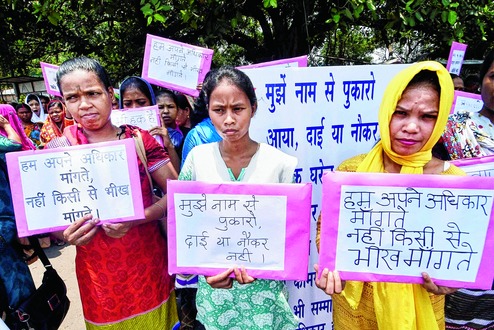
Suspecting slums are most vulnerable to tuberculosis cases, a survey has been undertaken by Patna civil surgeon in collaboration with non-government organisation Mamta Health Institute for Mother and Child earlier this week to find out the prevalence of the disease in the city's shanties under a project called Axshya.
The decision to start identification of tuberculosis patients in Patna's slums has been taken because earlier a good number of tuberculosis patients were diagnosed from slum areas in the districts.
"The survey was initiated on June 12 and so far we have covered around 150 homes near LCT Ghat in slum areas. We have found eight suspected tuberculosis patients. We are now going to get their tests done to know the actual status of the disease. As part of our programme, we are not only focusing on finding new cases of tuberculosis but awareness campaigns are also being organised in the slum areas to make people acquainted of the symptoms of the disease. After identification of the disease, we have to take the patient concerned to the directly observed treatment centre for further treatment," said Ranjan Kumar, an official associated with the Axshya project in Patna. Ranjan said the reason to start a survey in slum areas was because such shanties provide a perfect setting for the growth of tuberculosis.
"What we have found during our visit to the slums is that people live in unhygienic surroundings. Overcrowding and poor ventilation are the leading contributors to rise in TB cases. Besides, they don't maintain a distance, which further raises the possibility of the spread of the disease. The problem increases because most of the TB cases go unreported due to which the disease is further proliferated in the slum areas."
The health department data show surge in the cases of tuberculosis. While 203 TB cases were detected per lakh population in 2014, the number surged to 217 cases per lakh population in 2016.
Besides, there has also been an increase in multi-drug resistant TB cases. According to health department records, total 2,091 multi-drug resistant cases were detected last year, while 2,056 multi-drug resistant cases were detected in 2015.
As part of a measure to curb the disease, free medicines for first line TB patients was launched in the city on March 5. Medicines for first-line tuberculosis patients are being provided for free in some of the selected private pharmacies apart from government ones and DOT centres as part of the programme.










